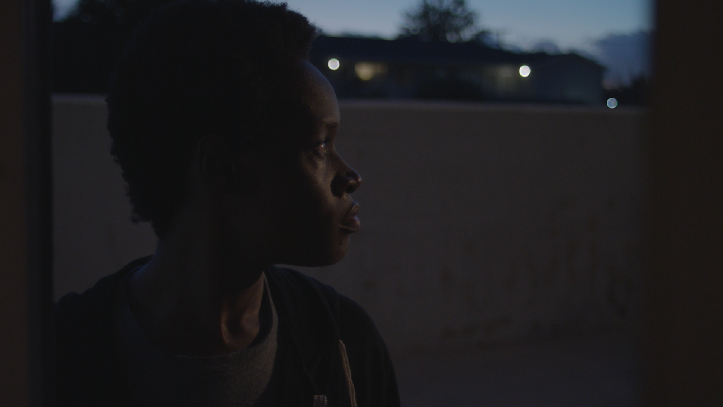Me Little Me
SXSW Film Festival Narrative Spotlight Section
Reviewed for Shockya.com by Abe Friedtanzer
Director: Elizabeth Ayiku
Writer: Elizabeth Ayiku
Cast: A’Keyah Dasia Williams, Shamar Philippe, Tamir Elbassir, Niki J. Crawford, Frania Dueñas, Mariel Flores, Kristian Flores, Clark Moore, ReSheda Terry, Marti Maley
Screened at: SXSW Film Festival Online, LA, 3/16/22
Opens: March 12th, 2022
No one really knows what anyone else is going through, but that doesn’t stop people from making assumptions and belligerently acting upon them. There are few areas where this happens quite as much as with food. Those who have no issues with what they consume and no need to keep track of quantity or control when or what they eat tend to push that nonchalance on others who are struggling, which can be both invasive and destructive. Me Little Me spotlights a character with an eating disorder whose efforts to get through it impact every aspect of her life.
Mya (A’Keyah Dasia Williams) works at a car rental agency where her numbers are recognized as very positive, earning her a prospective promotion. What that means is that she needs to deliver even more, and that the higher-ups are keeping close track of her. While putting in the extra work to show her commitment, Mya has her eating regimen monitored vigilantly in a recovery program meant to set her up for success. As the pressure mounts at work and she considers reconnecting with family members she has kept her distance from, Mya finds all the elements of her life crashing together in an uncontrollable way.
This film is notable in its depiction of eating disorders in that it almost purposely doesn’t explain the way Mya’s specific program works. Rather than show typical Overeaters Anonymous or similar meetings that other films and television shows have done, Me Little Me includes scenes where Mya and her peers go around and give numbers indicating how they are doing with food. There are parts of it that seem legitimately destructive and painful, but without the context to understand the overall program, judgment feels irresponsible, and instead audiences must simply trust that this is likely the healthiest option for Mya at this point in her life.
The most resounding scenes are the ones in which panic sets in, when Mya tries desperately to keep to what she knows will ensure that she stays balanced, having a snack ahead of a delayed meal to prevent her hunger from getting the best of her so she is able to keep any urges in check. Those without knowledge of what she has been through are understandably naïve, but it goes beyond that, with one supervisor callously chastising her for being unprofessional and repeatedly urging her in front of a client to order alcohol after she says no.
This portrayal of a type of microaggression is further compounded by the fact that Mya is a Black woman living in America, working to impress a white male supervisor whose qualities are not as despicable as they could but still include plenty of privilege and chauvinism. Mya is more than just the sum of her parts, and Williams, in her first film role, impresses greatly. In subtle moments like the ones where Mya steps up to do a job someone else easily could have done but didn’t want or think to, she conveys a lifetime of not being fully seen or appreciated for the skills she can offer.
Though there is not much humor to be found in this film, it does include characters whose primary motivations are supporting Mya. They may not always perform admirably and are prone to mistakes, but their presence is important since the journey Mya goes on might otherwise be far too isolating. The loneliness and singularity that she feels is crucial to her story, and writer-director Elizabeth Ayiku, in her feature film debut, brings Mya to life in a film that’s most memorably about the things we don’t know and the simple ways to broadly accommodate for unspoken needs.
84 minutes
Story – B+
Acting – B+
Technical – B+
Overall – B+

